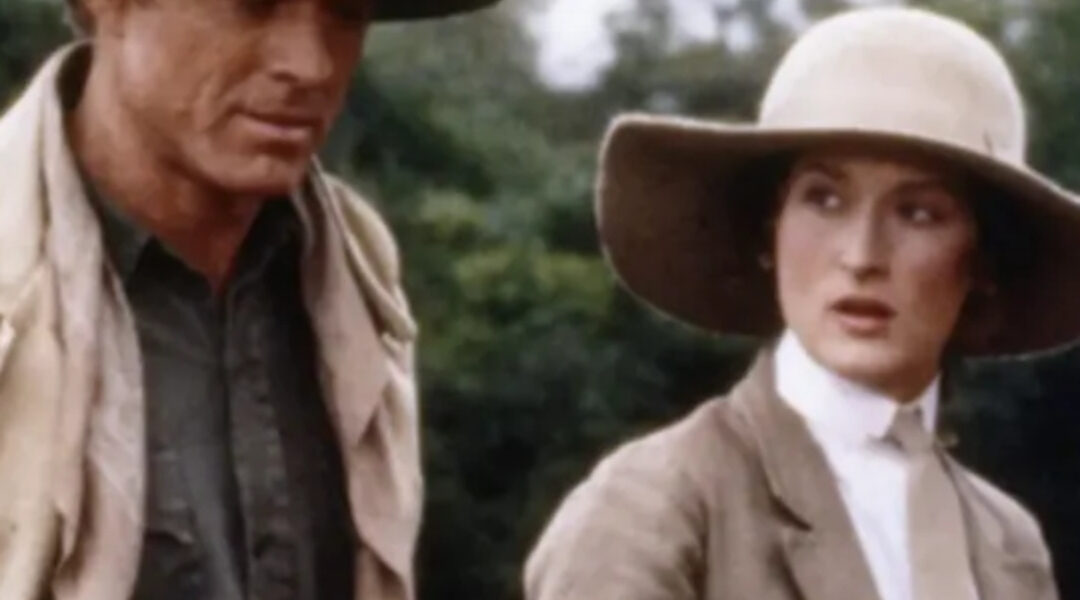When Out of Africa was released in 1985, it wasn’t just another sweeping love story — it was a meditation on freedom, loss, and the kind of love that refuses to be tamed.
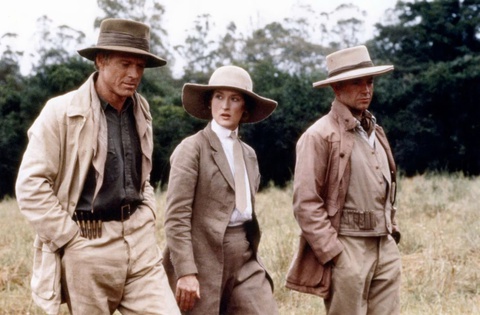
At its center was Robert Redford as Denys Finch Hatton, the enigmatic adventurer who captured both the wild beauty of Africa and the heart of Karen Blixen, played by Meryl Streep. But behind the elegance and romance of the film lies a story of artistic trust, unconventional choices, and quiet rebellion.
Director Sydney Pollack, Redford’s longtime friend and collaborator, made an unusual request when Redford joined the project: no British accent. The real Finch Hatton was English, but Pollack feared that audiences would be distracted if Redford adopted one.
Meryl Streep, ever the perfectionist, questioned the choice — “But Denys was British,” she reminded him. Redford simply smiled. He trusted Pollack’s instincts and replied later, “The accent was Denys, but the heart was mine.”
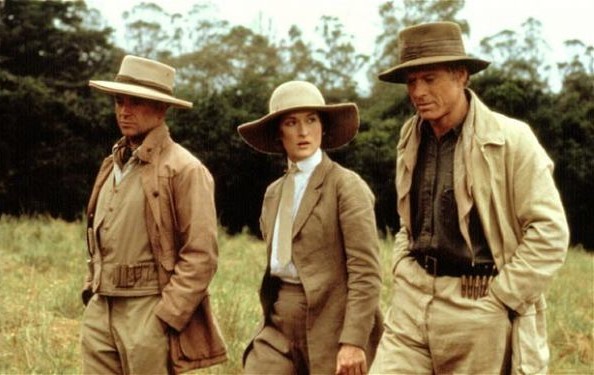
That decision shaped the entire film. Instead of focusing on imitation, Redford played Finch Hatton as a man of quiet depth — a dreamer who found freedom in untamed landscapes and connection in rare, unspoken love. His performance wasn’t about precision; it was about truth.
The film’s most iconic scene — Denys washing Karen’s hair by the river — almost never happened. Pollack initially wanted to cut it, fearing it might seem sentimental or indulgent. But both Redford and Streep insisted that it stayed.
“It’s the soul of their love story,” Redford told him. On the day of filming, he decided to do it for real — no rehearsed movements, no acting beats. He gently poured water through her hair, massaging it with tender, deliberate care.

What the camera captured wasn’t performance — it was authenticity. Streep’s serene, vulnerable expression was unscripted; her calm was real. That moment, intimate yet wordless, became one of the most unforgettable images in cinema — a quiet portrait of love built not on passion, but on presence.
The making of Out of Africa was anything but idyllic. Shot in Kenya’s wild landscapes, the production battled scorching heat, sudden downpours, and the unpredictable temperament of the African wilderness.
Lions sometimes wandered too close to the set; elephants occasionally disrupted the shooting schedule. But for Redford, it was paradise. Between takes, he would often disappear into the savanna, walking for miles, breathing in the vastness of the land.
“He seemed to want to become Finch Hatton,” Streep would later joke. “We’d be ready to roll, and someone would say, ‘Where’s Bob?’ He’d be halfway across the plains, lost in the moment.”
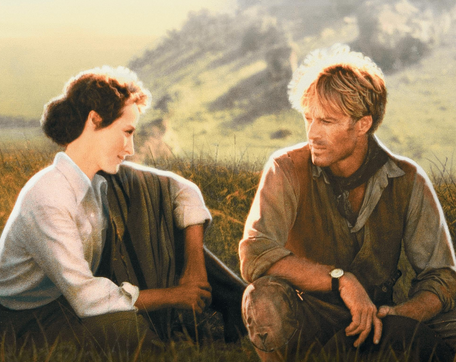
That was Redford — a man who lived his roles not through technique, but through immersion. He didn’t just play Denys Finch Hatton; he became him — a wanderer whose soul found meaning in space, silence, and simplicity.
When the film premiered, it soared — winning seven Academy Awards, including Best Picture and Best Director for Pollack. The sweeping landscapes, John Barry’s haunting score, and the undeniable chemistry between Redford and Streep etched the film into movie history. Yet, curiously, Redford himself wasn’t nominated for an Oscar.
He didn’t seem to mind. Awards were never what drove him. For Redford, the magic was in what wasn’t said — in the quiet tension between love and independence, in the bittersweet truth that some relationships, like Africa itself, are too vast to be possessed.
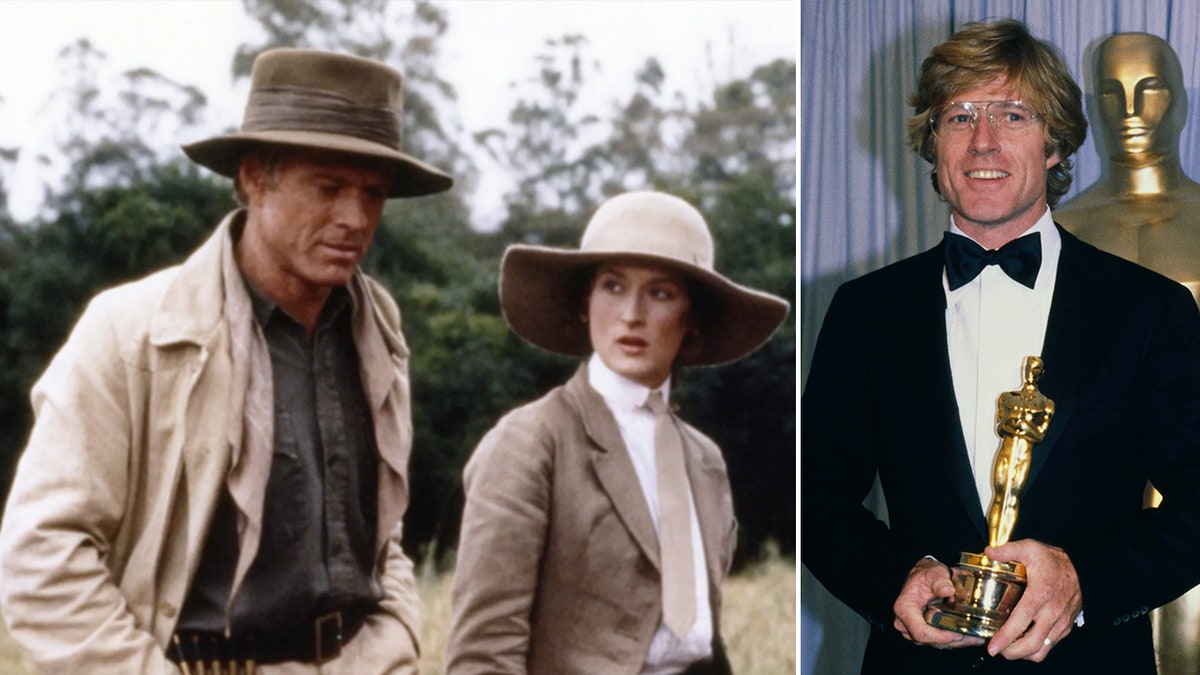
Looking back, Out of Africa endures not just because of its grandeur, but because of the humanity Redford brought to it. His Denys Finch Hatton wasn’t a hero or a lover in the conventional sense; he was a man who embodied freedom — untethered, mysterious, but deeply alive.
“The film was about more than romance,” Redford once reflected. “It was about what happens when two people meet the world — and each other — with open hearts, knowing they can’t hold on forever.”
And perhaps that’s why, decades later, that image of him kneeling by the river — sunlight on the water, tenderness in every gesture — still feels timeless. It reminds us that love, like Africa, is not something to own or control. It’s something to experience, to cherish, and to let go of when the wind changes.
For Robert Redford, that was the essence of Out of Africa: not perfection, but honesty. Not imitation, but heart.
